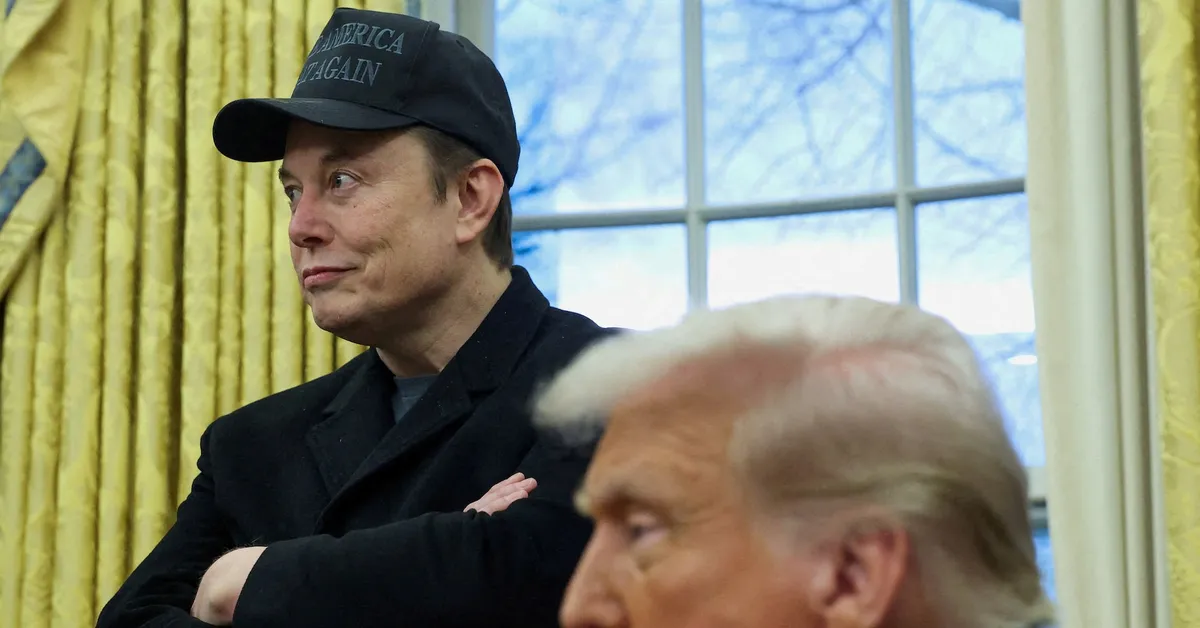
BOSTON/WASHINGTON, Feb 12 (Reuters) – A landmark decision by a federal judge has paved the way for tens of thousands of U.S. civil servants to opt for a buyout under President Donald Trump's administration. This unprecedented downsizing effort was given the green light on Wednesday, allowing the initiative to proceed.
Approximately 75,000 workers, equivalent to 3% of the civilian workforce, have already signed up for the buyout, according to a spokesperson from the U.S. Office of Personnel Management. The administration has assured participants that their salaries will be paid through October, even if they do not work. However, unions have expressed skepticism over the reliability of this offer.
Federal worker unions had previously filed a lawsuit to halt the program, leading to a six-day delay as U.S. District Judge George O'Toole in Boston reviewed the case. Despite these efforts, the judge ruled that the unions lacked the legal standing to initiate the lawsuit, suggesting that the issue should be addressed in alternative forums before reaching the courts.
The administration has since closed the program to new applicants. The Office of Personnel Management issued a statement declaring that the Deferred Resignation Program is both legal and beneficial for federal employees.
Unions involved in the dispute have not yet indicated whether they will appeal the judge's decision or pursue other legal avenues. Everett Kelly, president of the American Federation of Government Employees, emphasized that the ruling is a setback in the fight for dignity and fairness for public servants, but not the end of their struggle.
The buyout is one of several measures President Trump is employing to reduce the civilian workforce of 2.3 million, which he has criticized as ineffective and biased. He has instructed government agencies to prepare for significant job cuts, with some already beginning to lay off employees lacking full job security. Sources indicate that staff reductions of up to 70% are being considered at certain agencies.
While Trump's offer to maintain salaries and benefits until October is appealing, it may not be guaranteed. Current spending laws are set to expire on March 14, and there is uncertainty regarding funding beyond that date.
The U.S. Department of Justice described the initiative as a humane solution for employees frustrated by Trump's overall plans to downsize the workforce and limit remote work capabilities. However, unions have argued that the program is arbitrary and could disrupt essential government services.
Unions and Democratic attorneys general have mounted several legal challenges against Trump's rapid government restructuring, achieving some initial victories. In a separate lawsuit filed on Wednesday, five unions sought to block what they termed a potential mass firing of workers resisting buyouts.
President Trump has empowered billionaire Elon Musk to lead the newly established Department of Government Efficiency. This department is tasked with scrutinizing payment and personnel records to trim $1 trillion from the federal budget, which totaled $6.75 trillion last year. Civilian worker salaries make up less than 5% of the budget, and a reduction of less than 3% in headcount could save under $10 billion annually.
Trump has mandated federal agencies to collaborate with Musk's team to pinpoint employees for layoffs and eliminate certain functions. So far, Musk's team has focused on 15 agencies, dismantling two departments that provided crucial services.
Despite these efforts, Trump has ruled out cuts to popular retirement and health benefits for seniors, which account for 36% of federal spending. These benefits are projected to consume a larger portion of the budget as the population ages.
Meanwhile, Trump's Republican allies in Congress are crafting a budget plan to cut taxes and boost security spending, which experts predict will add trillions to the national debt.
Sign up here for more updates.
Reporting by Nate Raymond in Boston, Karen Friefeld in New York, and Tim Reid, Andy Sullivan, Steve Holland, Kanishka Singh, and David Shepardson in Washington; Writing by Andy Sullivan; Editing by Alexia Garamfalvi, Deepa Babington, Leslie Adler, and Gerry Doyle.